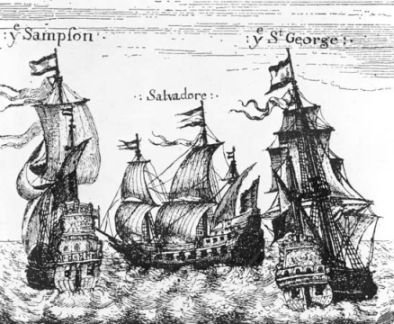
Copyright Notice: This article is from the Encyclopedia of North Carolina edited by William S. Powell. Copyright © 2006 by the University of North Carolina Press. Used by permission of the publisher. For personal use and not for further distribution. Please submit permission requests for other use directly to the publisher.

References:
Oscar T. Barck and Hugh T. Lefler, Colonial America (1965).
Lefler and William S. Powell, Colonial North Carolina: A History (1973).
Hugh F. Rankin, Upheaval in Albemarle: The Story of Culpeper's Rebellion, 1675-1689 (1962).
Additional Resources:
Culpepper's Rebellion, ANCHOR: https://www.ncpedia.org/anchor/culpepers-rebellion
Image Credit:
Navigation Acts: Dutch ships masquerading as English vessels, Photograph, from Encyclopædia Britannica Online. Available from http://www.britannica.com/EBchecked/media/129378/The-Sampson-the-Salvadore-and-the-St-George-three-Dutch (accessed Septemeber 7, 2012).
Smith, Carmen Miner. "Navigation Acts (1651, 1660)." NCpedia. State Library of NC. 2006. https://www.ncpedia.org/navigation-acts-1651-1660.